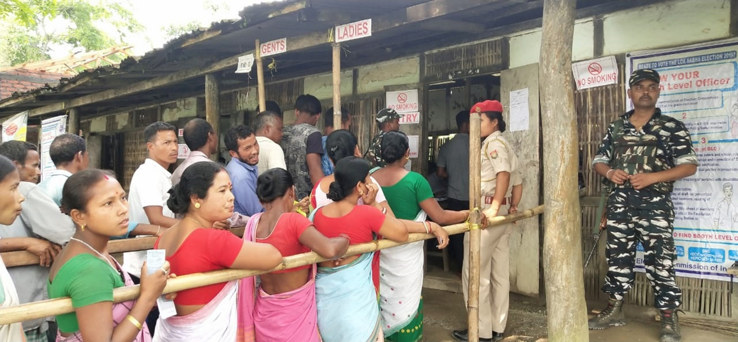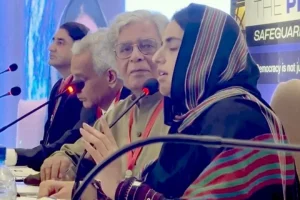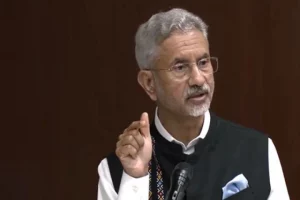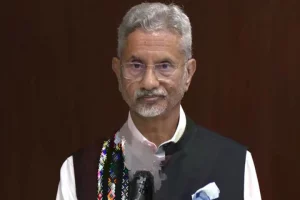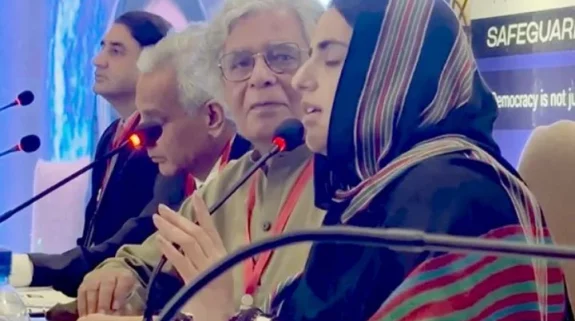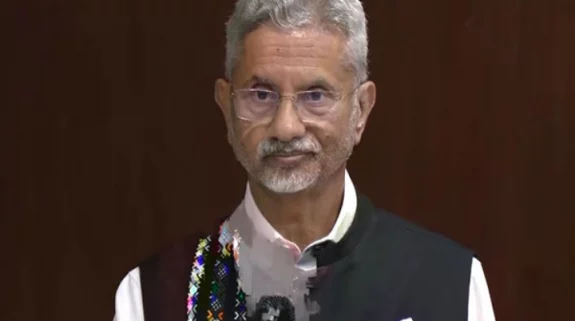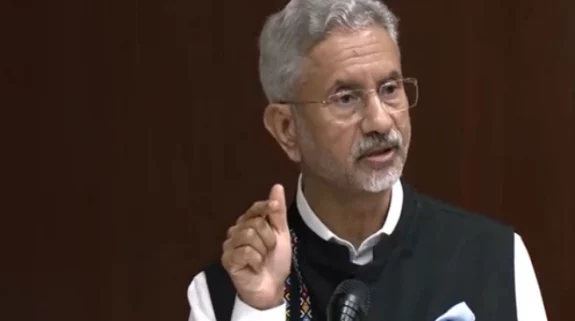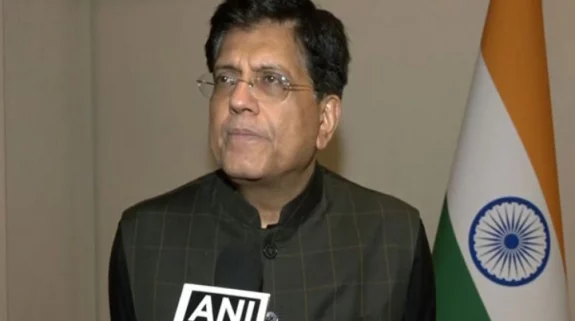Assam has become the BJP's stepping stone for establishing its dominance in rest of the Northeast with the party now fighting to defend its turf for a second term in power.
In the ongoing elections, Assam is witnessing a three-cornered fight. Pitted against the ruling Bharatiya Janata Party (BJP)-led front in the state are the Congress-led Mahajot or “grand alliance,” and a regional combine comprising two newly formed parties. According to media reports, all is not well between the two senior partners in the 'Grand Alliance' – Congress and All India United Democratic Front (AIUDF) led by perfume baron Badruddin Ajmal. The AIUDF is viewed as a party that bats for Bengali-speaking Muslim migrants. Congress leaders wary of “sending the wrong signal” to voters belonging to the indigenous communities feel an alliance with AIUDF could be counterproductive and help the BJP retain power.
For the BJP, winning Assam and retaining the state is vital. The party is expected to feel heartened by the reports from ground zero, which so far show that BJP is expected to sail through in the upcoming contest.
In contrast, the Congress confronts an uphill path. Its formidable leader in the past, Tarun Gogoi has passed away. After his passing, the Congress does not have another pan-Assam leader.
Since India’s independence, the Congress party has been in power for several terms in Assam. In fact, it held the reins for 15 years between 2001 and 2016. Its dream run ended in May 2016 when the BJP stormed to power in the state for the first time.
From winning just five seats in the state assembly election in 2011, the BJP won 60 seats in 2016 and with its then allies, the AGP and the Bodo People’s Front (BPF), secured 86 seats to form the government and continued its strong performance in the 2019 general elections when it won nine of the 14 constituencies from the state.
According to the BJP, in this election, good governance and the commitment of national leaders to treat Assam as priority are among the factors driving the party on the victory road. During an election rally on Thursday, Prime Minister Narendra Modi expressed confidence in the party's victory and said that people trust the National Democratic Alliance (NDA) for the development, peace and security of the state,”expressed confidence in the party's victory and said that people trust the National Democratic Alliance (NDA) for the development, peace and security of the state.”
Assam is a special case due to its location in the country’s north-east, which is culturally and linguistically distinct from the mainland, and is the largest state in the region that borders Bhutan, Nepal, China, Myanmar and Bangladesh, and sees a lot of cross-border migration, particularly from Bangladesh.
The document released by the Indian Chamber of Commerce (ICC) in 2019, says that since 98% of the states in the area share international boundaries with Bangladesh, Bhutan, Nepal, Myanmar and China, and are also rich in natural resources, NE enjoys a locational advantage to be promoted as an international trading and commercial hub.
Northeast India is the gateway to India’s connectivity with South and South East Asia. Given its strategic location, Northeast India can be seen as a window for India’s trade with Southeast Asia, including Bangladesh and China.
Assam, the largest state in the NE region, has presence of an educated labour pool, rich natural resources, infrastructure, conducive investment policies and ease of doing business as core strengths. In terms of the state’s investment potential, power & energy, minerals, tourism, crude oil refining, agriculture & food processing, pharmaceuticals, biotechnology, and IT&ITES sectors are offered for investment.
Importance is being given to the role of the northeast in India’s outreach to Southeast Asia. Modi has pointed out that “We have to make the northeast a gateway for Southeast Asia.”
Japan is also playing an important role in infrastructure development in the NorthEast including Assam.
In February, at an event on the “Act East Policy and India-Japan Cooperation in North-East India with a Special Focus on Assam,” the External Affairs Minister S Jaishankar had stressed that “to make this policy successful, the role of Assam as its springboard needs to be fully realised.” Jaishankar was in Guwahati to review a Japan International Cooperation Agency (JICA)-funded Guwahati Water Supply project site with the japanese Ambassador.
Speaking about Act East Policy, he said, "It is an approach to create connectivity within Assam, to the NorthEast then to Myanmar and Bangladesh but eventually push by road, sea, air to Vietnam and Japan. It won't just be an economic activity but make Assam more connected, energetic, contributing and employed."
PM Modi has been emphasizing in his election rallies about rapid development of Assam and northeast region are integral part of self-reliant India and that the region is widening the country's connection with the eastern Asian countries under the 'Act East' Policy.
Modi has told the people of Assam that his government has always kept the preservation of the Assamese culture in its top priority list and implemented policies for protection of the Assamese language and promotion of its literature.
"The fast-paced development of Assam is very important to us. The way to 'Atmanirbhar Assam' is through 'Atmavishwaas' (self-confidence) among the people here. 40 per cent of the state's population is taking benefit of 'Ayushmaan Bharat' scheme of the Central government," PM Modi said.






